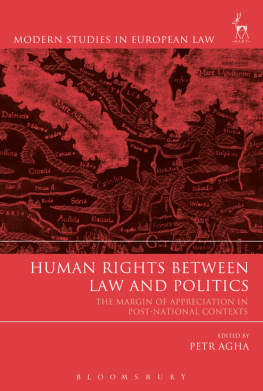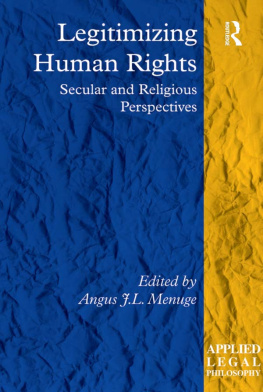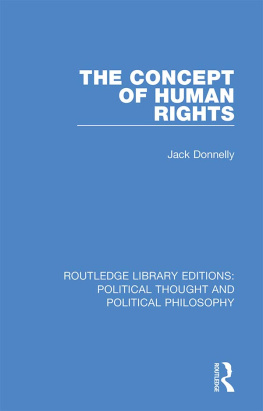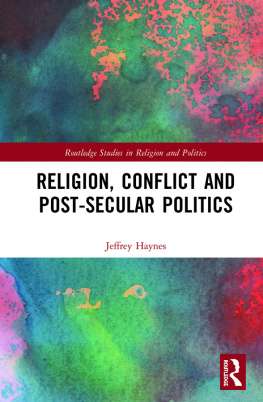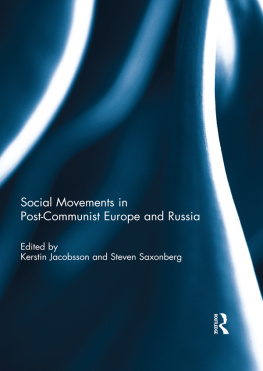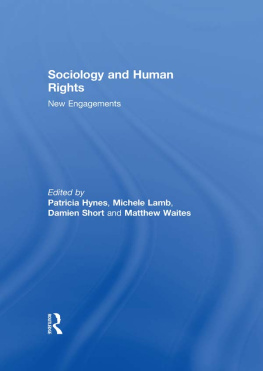Contents

HUMAN RIGHTS BETWEEN LAW AND POLITICS
This book analyses human rights in postnational contexts, and demonstrates, through the case law of the European Court of Human Rights, that the Margin of Appreciation doctrine is an essential part of human rights adjudication.
Current approaches have tended to stress the instrumental value of the Margin of Appreciation, or to give it a complementary role within the principle of proportionality, while others have been wholly critical of it. In contradiction to these approaches, this volume shows that the doctrine is a genuinely normative principle capable of balancing conflicting values. It explores to what extent the tension between human rights and politics, embodied in the doctrine, might be understood as a mutually reinforcing interplay of variables rather than an entrenched separation. By linking the interpretation of the Margin of Appreciation doctrine to a broader conception of human rights, understood as complex political and moral norms, this volume argues that the doctrine can assist in the formulation of the common good in light of the requirements of the Convention.
Volume 76 in the Series Modern Studies in European Law
Modern Studies in European Law
Recent titles in this series:
Equal Citizenship and Its Limits in EU Law
Pivi Johanna Neuvonen
European Law on Unfair Commercial Practices and Contract Law
Mateja Durovic
The European Unions External Action in Times of Crisis
Edited by Piet Eeckhout and Manual Lopez-Escudero
The Legitimacy of Family Rights in Strasbourg Case Law:
Living Instrument or Extinguished Sovereignty?
Carmen Draghici
Strengthening the Rule of Law in Europe:
From a Common Concept to Mechanisms of Implementation
Edited by Werner Schroeder
The Pluralist Character of the European Economic Constitution
Clemens Kaupa
Exceptions from EU Free Movement Law
Edited by Panos Koutrakos, Niamh Nic Shuibhne and Phil Syrpis
Reconceptualising European Equality Law: A Comparative Institutional Analysis
Johanna Croon-Gestefeld
Marketing and Advertising Law in a Process of Harmonization
Edited by Ulf Bernitz and Caroline Heide-Jrgensen
The Fundamental Right to Data Protection:
Normative Value in the Context of Counter-Terrorism Surveillance
Maria Tzanou
Republican Europe
Anna Kocharov
Family Reunification in the EU
Chiara Berneri
EU Liability and International Economic Law
Armin Steinbach
The EU and Nanotechnologies: A Critical Analysis
Tanja Ehnert
For the complete list of titles in this series, see
Modern Studies in European Law link at
www.bloomsburyprofessional.com/uk/series/modern-studies-in-european-law
Human Rights between
Law and Politics
The Margin of Appreciation
in Post-National Contexts
Edited by
Petr Agha

OXFORD AND PORTLAND, OREGON
2017
PETR AGHA
W HEN WE READ the literature dealing with the jurisprudence of the European Court of Human Rights (hereinafter Court or ECtHR) and its practice and argumentation, one particular part of its jurisprudence seems to stand outthe judge-made interpretive principle, the so-called margin of appreciation (hereinafter MoA or doctrine). The reader often learns that the MoA is immensely dangerous for the preservation of human rights (culture) or that it is an instrument which serves as an apology for yielding universal human rights to the wishes of governments to limit human rights. The abundance of references to the margin of appreciation in the case law of the Court has received severe criticism from scholars, and also occasionally from individual judges of the Court itself. They all seem to arrive at a very similar conclusionthe role and function of universal human rights framework and that of the Court, to act as external guardians, is severely hindered by the prevalence of the MoA in the jurisprudence of the Court.
More specifically, we can identify three broad groups which somehow summarise the many fronts on which the MoA is criticised. First, the margin of appreciation doctrine is often seen as an inconsistent and opaque part of the Courts jurisprudence. It is criticised for how it undermines the normative guidance of substantive rights and how it allows normative ambiguity to enter the decision-making process of the Court. Such erosion in turn undermines the ability of the Strasbourg system to safeguard the Convention rights and leads to inconsistent standards of human rights in the seemingly similar cases. Second, undermining normative expectation undermines the role and legitimacy of the Court itself. If the MoA becomes an integral part of the practice of the Court, the Court itself runs the risk of effectively abdicating its supervisory role. Third, the MoA tends to infuse the practice of the Court with subjective and relativist standards, which undermine the very idea behind the Convention and the concept of human rights in general, that is, universally valid standards.
Judge De Meyer, writing in his dissenting opinion in the Z v Finland case, famously summarises the common attitude we come across when it comes to the Even more tellingly, he continues: I believe that it is high time for the Court to banish that concept [of margin of appreciation] from its reasoning. It has already delayed too long in abandoning this hackneyed phrase and recanting the relativism it implies.
The aim of the Council of Europe, at its inception, was to achieve greater unity between European states in the aftermath of the Second World War and to protect and promote their common heritage (and to facilitate the socio-economic progress). The political democracies of the Contracting Parties should accordingly play a significant role in the development of the standards of the European Convention on Human Rights (hereinafter ECHR or the Convention) and should not just await the Courts dynamic interpretation. The Preamble does not merely leave the rights to common understanding and observance of human rights, but also to the effective political democracy. The domestic authorities can thus be considered not only empowered, but also obligated to interpret and apply the ECHR in good faith and in accordance with international standards without taking advantage of the subsidiary nature of the international review under the ECHR. In this respect, the Courts relationship with the Member States is crucial. The Strasbourg system is on the one hand a judicial framework providing for human rights protection, but on the other hand is dependent for its realisation on the Contracting States who work in tandem with the Court.
The MoA was originally applied in the context of derogations, but has now spread to the interpretation of the scope of obligations under some aspects of all the substantive articles and to the accessory protection against discrimination in Article 14.in the ECHR shall limit the rights and freedoms otherwise secured under domestic law. Yet, at the same time Article 53 prevents the Contracting Parties from diminishing or deviating from higher national and international standards. Since nothing in the ECHR can be invoked to limit the guaranteed rights and freedoms, the principle of subsidiarity cannot legitimately be invoked to strike a fair balance to the detriment of individual rights.

